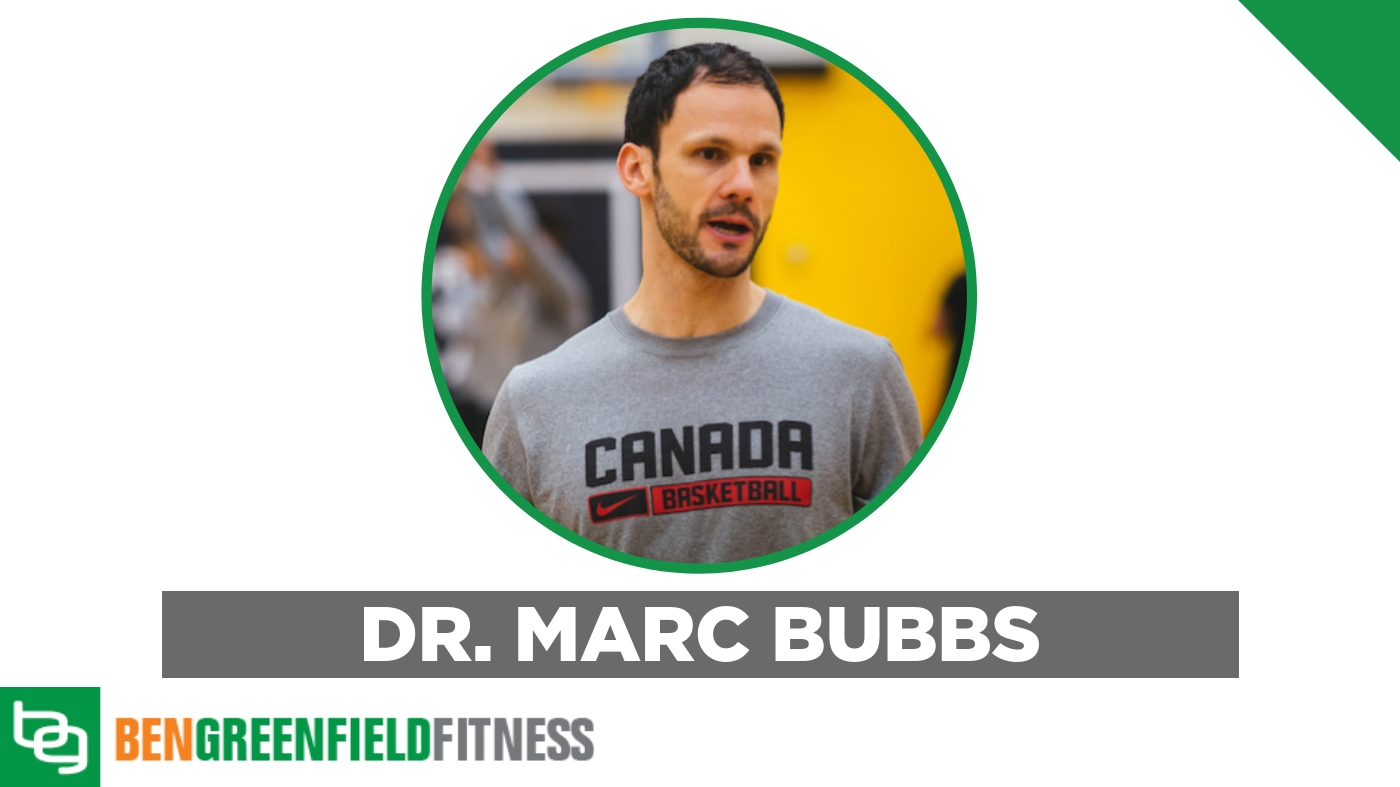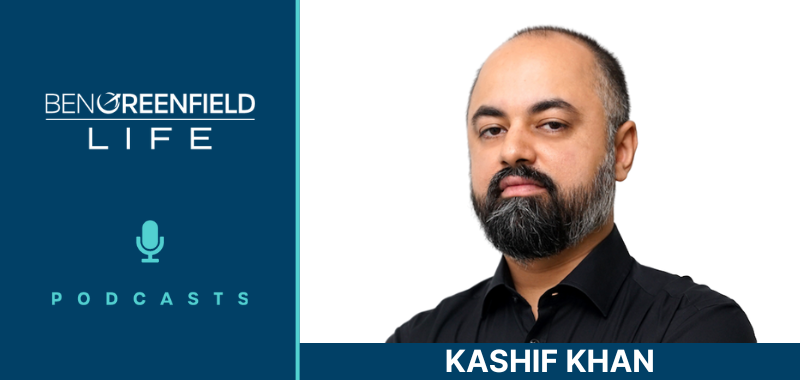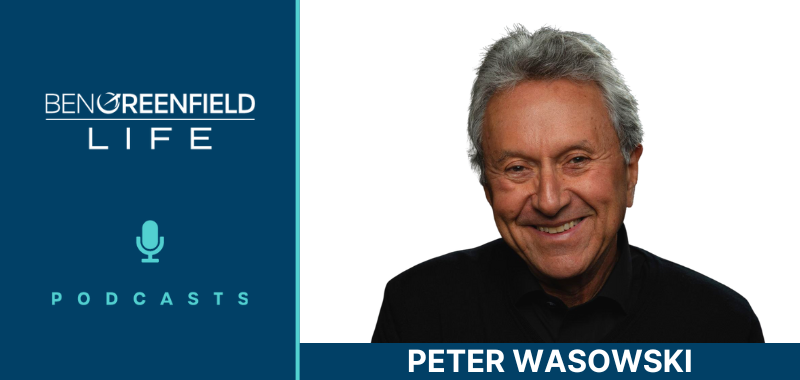June 22, 2019
Peak: The New Science of Athletic Performance That is Revolutionizing Sports is a new book by my fellow C-ISSN and CSCS, Dr. Marc Bubbs. It was one of my best reads of the year for all things sports science. A few of my big takeaways include:
- Endurance athletes seem to need more sleep than strength athletes, and both seriously suffer when sleep is anything less than 6 hours.
- A temperature change in your fingertips is likely the first circadian cue you get at the beginning of the day (I could totally see a potential jet lag device that warms the fingers – I’ll take the royalty for that, please. ;) ).
- Aerobic training for strength athletes could assist with their immune system strength.
- Loading with probiotics for 2 weeks leading up to competition could give you an ergogenic edge.
- Elite athletes on a subpar diet show the same blood biomarkers as those with pre-diabetes and a fructosamine blood test can be one of the best ways to measure this.
- Top supplements proven to work in exercise science, with the strongest track history, are creatine, caffeine, nitrate precursors (e.g. beet), whey protein, beta-alanine, and sodium bicarbonate.
- Athletes with the CC genotype of the CYP1A2 gene are actually hampered in performance in response to caffeine intake.
- Eating carbs too far from a performance event (e.g. 60-75 minutes) results in hypoglycemia before the event vs. consuming them closer to the event (e.g. 20-45 minutes)
- Fish oil can stimulate muscle building by stimulating mTOR pathways. Vitamin D and creatine are also very good for recovery, not just performance. Creatine can even be helpful for TBI/concussions.
- High sugar intake is associated with lower heart rate variability (HRV).
- Cold water immersion (CWI) beats cryotherapy for recovery, hands down.
You can get this brand new book here.
But I also decided to get author Dr. Marc Bubbs on this podcast to take a deeper dive into the concepts above, including the best supplements for recovery, performance, as well as many other topics. He is a licensed naturopathic doctor, performance nutrition lead for the Canadian Men's National Basketball Team, speaker, and former strength coach. Marc also hosts the Dr. Bubbs Performance Podcast, connecting listeners with world-leading experts in human performance and health. Dr. Bubbs regularly presents at health, fitness and medical conferences across North America, UK, and Europe and consults with professional teams in the NBA, NHL, and MLB. He practices in both Toronto, Canada and London, England.
During our discussion, you'll discover:
– How Marc gathers, curates and assimilates new information for his practice…8:45
- Struggled as a young athlete with disease, etc. and discovered naturopathic medicine
- He realized that there wasn't much of a market for it (circa 2000) but he embraced it and became the best at it
- The more personal contact with the source of info, the better (there's nuance in conversation that doesn't make it into an academic paper)
- Vast resources available on the Internet (and they're all true, of course)
– Current research on caffeine as an ergogenic aid…15:00
- Study conducted by Nanci Guest, University of Toronto:
- Cycling time trial under 3 different conditions:
- 0 caffeine
- 2 mg caffeine
- 4 mg per kg of caffeine
- AC gene variants had no benefit
- AA gene variants had a benefit at both 2 mg and 4 mg levels
- Athletes with the CC genotype of the CYP1A2 gene are actually hampered in performance in response to caffeine intake
- Cycling time trial under 3 different conditions:
- The sweet spot: 3-6 mg of caffeine per kg per day
- 23 and Me test will identify CYP1A2 gene
– How endurance and strength athletes differ regarding sleep needs…21:18
- Endurance athletes fare better on the upper end of the sleep suggested amounts (8-10 hrs)
- They also suffer more on lack of sleep
- Greater volume of training
- More early morning sessions
- Sleep is #1 recovery tool some docs recommend
- It's one thing to acknowledge the need, quite another to actually get more sleep
– The relationship between finger temperature and circadian rhythm…31:25
- Fingertips are the first to sense changes in environment
- Possibility of warming hands to help the body adjust its circadian rhythm while traveling
- ChiliPad I sleep on
– How aerobic training can help the immune system of endurance athletes…35:30
- “Elite performance is incompatible with frequent illness.” –Dr. Michael Gleason
- Maintaining an aerobic base supports innate immunity
- Aerobic training in the protocol of a strength athlete will improve immune system
- Consider incorporating aerobics if red flags of sickness or fatigue occur
- Could be a means of recovery
- Simply being well enough to train is a big part of the picture
- Don't forget fundamentals like washing hands
- Fingertips, webs, and backs of hands are often missed
– Probiotics as an ergogenic and performance-enhancing tool…42:10
- Study on Olympic athletes in 2008:
- 2/3 of those studied showed benefit in 2 key areas:
- Preventing upper respiratory tract infection
- Reversing upper respiratory tract infection
- 2/3 of those studied showed benefit in 2 key areas:
- Start 2 weeks before event
- Colostrum can be efficacious while performing in the heat
- Gut is a “black box” of the body; a key indicator in assessing overall health
– Up and coming supplement research and diet strategies Marc is following…50:45
- “Food first” approach
- Creatine, whey protein, caffeine are major players
- Nitrate precursors: beetroot, arugula
- Endurance sports, struggle to lose weight: have the wrong approach
- Nicotinamide riboside
- Ketones for concussion recovery
- High rate of head trauma among teens
- Women's ice hockey is the highest risk
- Peptides
– Why athletes on a subpar diet show the same blood biomarkers as those with pre-diabetes…56:10
- Endurance athletes are more concerned with hypoglycemia, not hyperglycemia
- Study: 4 of 10 participants spend 70% of the time with blood glucose in prediabetic range
- Exercise is a stressor; contributes to raising blood glucose
- Over fueling more of a problem than we think
- Case study in Japan on two ultra-marathoners: one elite, the other sub-elite on a 100-mile race
- At wake-up: elite has glucose level of 90; sub-elite is 110
- Sub-elite glucose level rises, then crashes around mile 70
- Elite runner came through just fine
- Fructosamine measurements for blood glucose levels
- HA1c skews to more recent fueling in its readings
- 2-3 week window vs. 3 months on HA1c
- Measuring glycated albumin rather than glycated hemoglobin
- More expensive; used for a more acute picture
– The best time to consume carbs before training…1:07:45
- Dr. Mark Russell: Half-Time Strategies to Enhance Second-Half Performance in Team-Sports Players
- Biggest drops in glucose came from those who had drinks 75 minutes before the game
- Emma Stevenson of Newcastle University did a study on maltodextrin vs. honey
- Maltodextrin had blood sugar drop of 19%
- Honey had blood sugar drop of 4%
- Time carb intake so that blood glucose spike takes place during the event
- Optimal overall carb intake for strength vs. endurance athletes:
- Strength: 4-7 g per kg per day
- Endurance: 6-10 g per kg
- “Training low” in team sports: low carb availability
– Comparing the effectiveness of cold water immersion (CWI) to cryotherapy…1:22:40
– And much more…
Click here for the full written transcript of this podcast episode.
Resources from this episode:
– Peak: The New Science of Athletic Performance That is Revolutionizing Sports
– Alan Aragon's Research Review
– Chilipad
– The combo of ATP and HMB Ben mentions
– Dr. Mark Russell: Half-Time Strategies to Enhance Second-Half Performance in Team-Sports Players
Episode sponsors:
– Kion Aminos: Building blocks for muscle recovery, reduced cravings, better cognition, immunity, and more. Get 10% off your order of Kion Aminos, and everything at the Kion site when you use discount code: BGF10.
– JOOVV: After using the Joovv for close to 2 years, it's the only light therapy device I'd ever recommend. Give it a try: you won't be disappointed. Order using my link and receive a nice bonus gift with your order!
– Thrive Market: Organic brands you love, for less. Your favorite organic food and products. Fast and free shipping to your doorstep. Receive 25% off your order when you use my link!
– Birdwell Beach Britches: Quality is our Gimmick isn’t just our slogan, it’s a commitment we honor with every stitch we sew. 100% money back guarantee. Get 10% off your order, PLUS free shipping on any order over $99 when you use discount code: BENG.














Hi Ben,
In this episode you mention you wear a Blood Glucose monitor at all times.
Which one are you using?
Also, how would you suggest tackling an inability to absorb sufficient iron from foods?
Same here, I have 32 marker (SNP)’s with the cyp1a2 gene when looking at my 23&me data. It looks like the answer is rs762551 when viewing the Snpedia website, but that study was linking coffee to breast cancer reduction. Anyone yet have a definitive on this? My genotype is AA for rs762551, but i know I am a slow metabolizer of caffeine so a little confused.
Hey Ben, I recently had my 23&Me results come back. The caffeine consumption gene CYP1A2, according to them, is a C-T pairing. After listening/reading this podcast I didn’t see what that expression meant and was curious if you (or anyone else) could help me out. Thanks and always love your content!
Thanks. I enjoyed the episode. Question. Would you classify L citrulline as a nitrate precursor? If so, is it similar to or not as good as beet root or argula?
Check this out: http://bit.ly/2Qo0rEh
Would any of these performance hacks apply to kids who play sports at a high level?
I would think so but as they noted the hacks tend to do more for those that are not in top shape.
I would be more conservative in regards to supplements, but many of the strategies including: cold thermo, diet optimization, circadian rhythm/sleep regulation would all be great.
Hi Ben,
Long time listener here, love the show!
I see multivitamins did not make the list of top supplements for athletes. It seems like I remember you stating in the past that you do not recommend multivitamins for most people, that you only use them when traveling, etc. How does one find out if they need one? In your recent podcast on your genetic testing you mentioned the availability of customized products, is this how someone makes that determination? Through genetic testing? Or would someone use a combination of tests like blood, urine and genetic?
Thanks!
Keep doing what you are doing!!
Mike
In my opinion it would be best to do a combination of biomarker testing. This will help identify deficiencies, which may allow you to take more targeted action.
Hey Ben.
Long time listener first time poster. I’ve been looking all over the internet I was wondering what is your sauna routine.
I’ve been doing cold shower 25 min, cold shower, 20 min, cold shower and 15 min with cold shower finish (non infra red sauna)
What do you think about lathering your body and hair in coconut or olive oil?
Do you have multiple routines such as one including moving and stretching and one where you don’t move at all? Should you hydrate in the sauna or before/after?
I assume sauna effectiveness would vary from person to person but I haven’t been able to find any credible sources online. Would be very interested to know what you do. Thanks!
Check this out: http://bit.ly/2JCLiNG
Hey Ben. Which SNP should we be looking at for caffeine metabolism?
If you search “CYP1A2” in your 23andme profile, it may pull back several different SNPs, positions, and variants that fall under the broader umbrella of “CYP1A2”.
(for people reading, if you click on your name and then click “Browse Raw Data” you can search for specific genes)
Thanks for the content!
After a quick google, found “rs762551” with variants A or C. Looks like this is the SNP to look at. Reference: https://www.snpedia.com/index.php/Rs762551
David – how did you come to the conclusion that RS762551 is the one to look at? This SNPedia page lists several related alleles. https://www.snpedia.com/index.php/CYP1A2
Hi! Also wondering how this SNP was confirmed, its hard to tell from the ref you provided unless I am not reading it correctly. thank you!
Thanks for your efforts in bringing this information to your readers which will spread to many others!